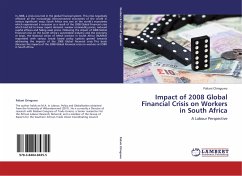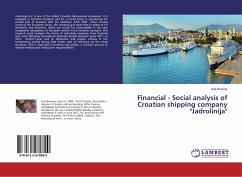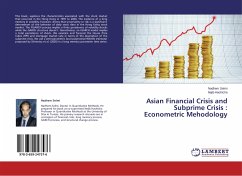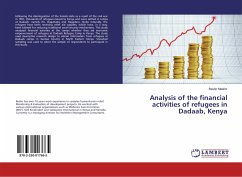
Impact of 2008 Global Financial Crisis on Workers in South Africa
A Labour Perspective
Versandkostenfrei!
Versandfertig in 6-10 Tagen
32,99 €
inkl. MwSt.

PAYBACK Punkte
16 °P sammeln!
In 2008, a crisis occurred in the global financial system. This crisis negatively affected all the increasingly interconnected economies of the world in various significant ways. South Africa was one of the world s economies which experienced a recession as a result of the 2008 Global Financial crisis which had led to lower export demand, weaker commodity prices, reduced capital inflows and falling asset prices. Following the impact of 2008 Global Financial crisis on the South Africa s automobile industry and the economy at large, the National Union of Metal workers in South Africa (NUMSA) res...
In 2008, a crisis occurred in the global financial system. This crisis negatively affected all the increasingly interconnected economies of the world in various significant ways. South Africa was one of the world s economies which experienced a recession as a result of the 2008 Global Financial crisis which had led to lower export demand, weaker commodity prices, reduced capital inflows and falling asset prices. Following the impact of 2008 Global Financial crisis on the South Africa s automobile industry and the economy at large, the National Union of Metal workers in South Africa (NUMSA) responded with various broad based policy options geared towards addressing the impacts of the 2008 Global Financial crisis. This book discusses the impacts of the 2008 Global Financial crisis on workers at FORD in South Africa.












